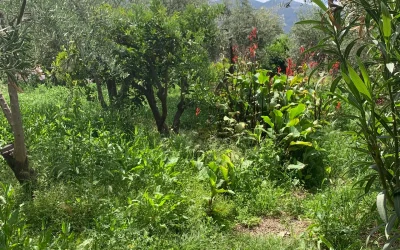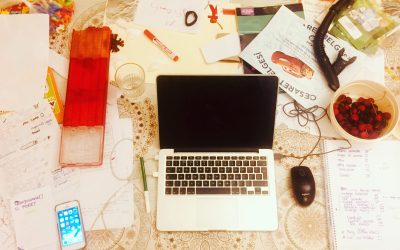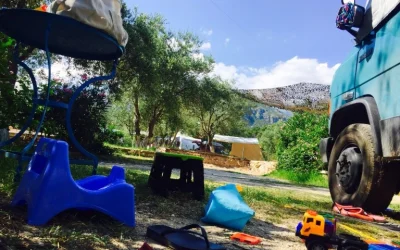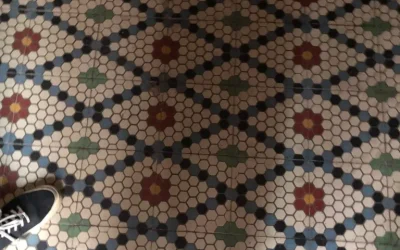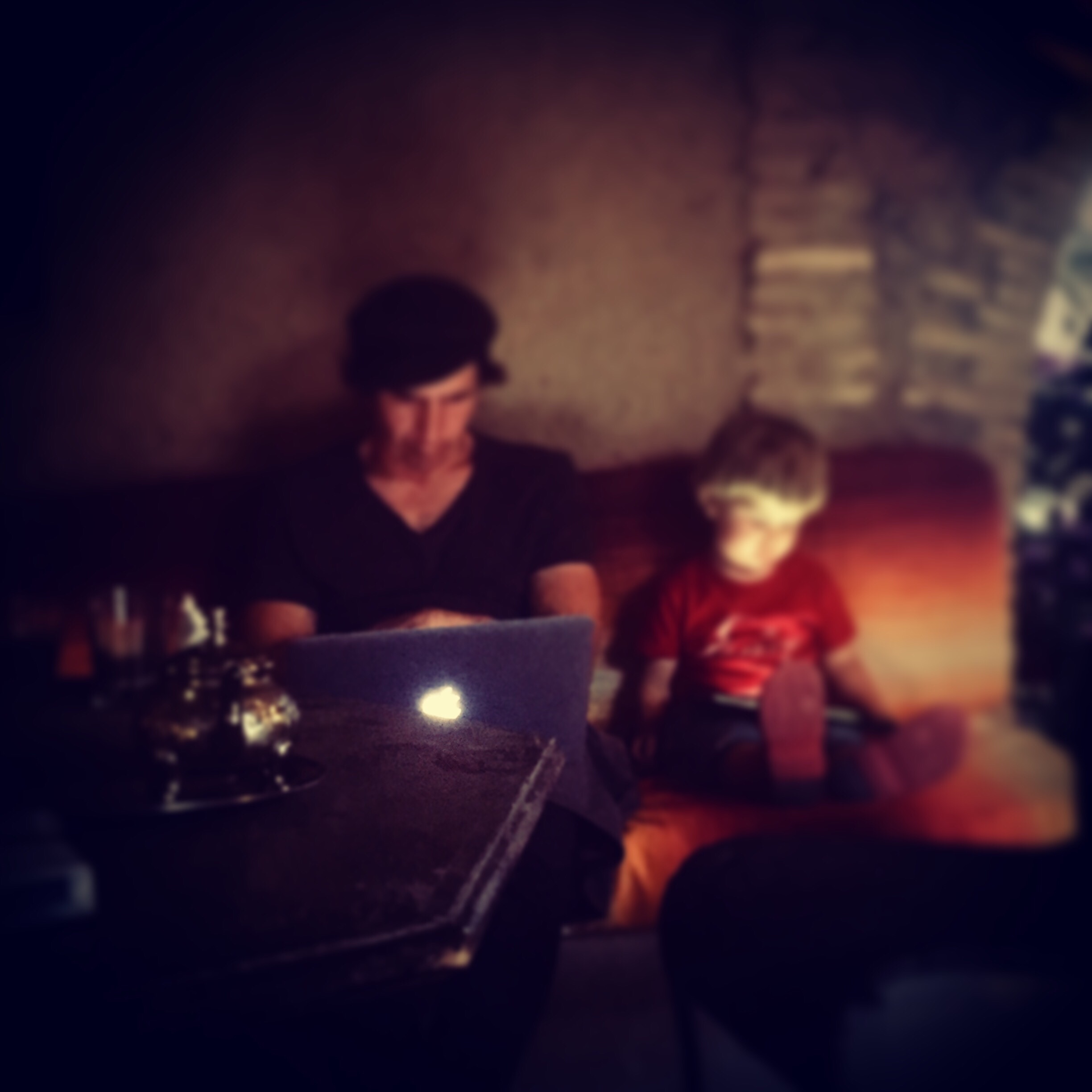
1. Of course kids are gonna get fat and ill if they play on screens all day and don’t exercise or interact with anyone. The need for balance is obvious, let’s move beyond that
2. It’s the message that’s important not the medium, right? Are they using the screen to play ‘educational’ games, or watch endless ‘trashy’ cartoons? Or perhaps worse: YouTube videos of someone with painted nails endlessly opening kinder eggs (why!?). My son went through a stage where he was only interested in watching YouTube videos of someone pushing toy tractors through sand. This freaked us out. But as soon as he showed interest in following a narrative we steered him away from this and towards short films and series suitable for his age. For a while he kept asking for ‘tractors’ and we just changed the subject and he got over it (and moved on).
3. Children are dynamic and constantly changing. So are our family circumstances. If your toddler is spending a lot of time on their screen, this doesn’t mean it will continue in that vein forever. Our son was particularly difficult to handle around 22 months before he could really talk. Plus at that point we were trying to pack to go travelling (in a bus that wasn’t finished) and things were extremely stressful for us. We found the screen really useful at this point in our lives – a lifesaver in fact- because it would occupy him completely for at least an hour sometimes. Now he’s a bit older, and is beginning to occupy himself with imaginary play, and we are a bit less stressed as a family, we don’t need to use it so much as a babysitter.***
4. There is a fundamental difference between a personal screen and a shared TV in a shared space. This didn’t occur to me until it was too late, because we didn’t have a TV. For those who don’t have a TV (which is increasingly common) a personal screen seems an obvious choice for the kids but I found this a mistake that was then hard to go back on. The TV convenes the members in the room, while the personal screen isolate them. I try to watch programmes and play games with my toddler on his screen, but, mimicking me perhaps, he pulls it away, preferably watching alone. The TV just does not behave in this way. It’s something you gather round to watch and interact with together, for better or worse. From my experience I would say try and avoid giving toddlers a personal screen if you can. Or if you do get them a personal screen don’t tell them it’s theirs so they don’t get too attached to it, or have that sense of ownership. This keeps you more in control, to change the dynamic when you need to.
5. Screen-use is part of a social environment that you create for your family, and one in which you set the example. We thought a lot about what we fed our son at dinner time, but seemed more lax when it came to the diet of the mind, which seems ridiculous for a sociologist but what you don’t realise is how much you have to change your habits and ‘diet’ to help them. Put restrictions on use, or make a routine, that fits with when you need the screen most: ‘you can only go on the screen when mum’s making dinner’, or ‘no screens after dinner in the evening’. For example. Basically try to lay down rules or conventions that you want to form into healthy screen use that they take with them into later life. (And lets practice what we preach, innit. Obviously if you sit on your screen all evening, they will want to mimic.)
6.’Open ended browsing’ (such as surfing YouTube) seems to me to be the most problematic screen behaviour for my son as a toddler. He learnt how to surf YouTube within a few days of being introduced to it. We know ourselves how addictive surfing the net is, with the infinite information, pages to view, posts to scroll, pictures to swipe. I had a friend who went on Facebook every evening and he was unable to sign off until he had scrolled through every new post until he reached the posts from the day before. Crazy right, but we all can recognise our own similar negative screen behaviour like this. With my son, open ended browsing seemed to re-enforce his already short attention span: he would never watch something until the end, tending to jump from one YouTube video to another in the space of a few minutes. This was something we wanted to discourage from becoming habitual. Also open-ended browsing meant he could technically be watching something totally unsuitable. Although the feed generally filled with videos aimed at toddlers, this didn’t mean I approved of them. pseudo-advertising (aswell as actual blatant advertising) was rife, be it for branded toys or branded candy. But there is also something quite dark about some of the content, much of it being set to the same happy hardcore mix of ‘Old MacDonald’ and ‘Mommy Finger’ tunes (which makes you feel completely manic after a while); features disembodied adult hands playing with toys or unwrapping candy; in hyper-synthetic landscapes. Plus the feed is often hijacked by a channel called ‘bad baby’ which features older kids miming babies doing mischievous things involving gaffa tape. That’s not to mention that the content completely reinforces western capitalist norms, unchallenged. I guess it’s possible to restrict the YouTube feed to only videos that you have vetted and selected, but if you haven’t then I would avoid it entirely in the early years.
To conclude, I think to answer my title question, is the tablet computer a tool of the devil, with regards to young children, the answer is yes, it has the real potential to be, but you can circumvent the devils tactics with some attention to the details. With close supervision and restrictions you can hopefully use it to your ends, and not fall into the manipulation.
In post script, I think it’s important to ask why we are blaming screens when we should be blaming the conditions that we have to live in that mean that we need to use them as a babysitter (because that is basically what they are): long hours of paid work, plus housework that all takes place in isolated or nuclear or single parent families with no, or little, daily support networks. What we can try to do is to organise more co-parenting where groups of parents or family members get together and parent several children together, sharing the labour of parenting, housework and even the takings from paid work. But that’s another blog post.
Post post script, I’ve since had further dealings with kids-oriented YouTube videos and I have more to say about their sinister nature. Another blog post to follow.
*Oh no, we thought it was gone for good, how we were mistaken…
**I’m not going to hyperlink it, look it up yourself if you care (dare?) enough to go down this road
***Oh ho. The dynamic has shifted again and it creeps back in. You have to click ‘follow’ to hear what happened next.

